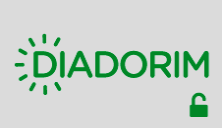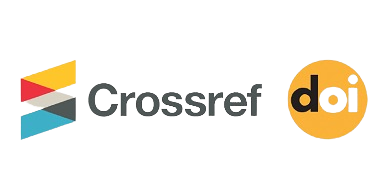The new Foreign Language Curriculum for Primary Education in Spain. Teaching Implications
DOI:
https://doi.org/10.29327/269116.3.5-4Keywords:
Curriculum, Teachers, Foreign Languages, Primary EducationAbstract
This article reports on some of the curricular shifts we have recently witnessed with the entry into force of the Organic Law governing the whole Spanish education and training system. Specifically, we focus on the curricula that regulate the teaching of foreign languages in Primary Education. We explain the new guidelines and the most significant changes, which leads us to present the characteristics of the foreign language curriculum from two standpoints: the structural and the institutional/didactic one. Consecutively, we present some planning, teaching and methodological implications of the new regulations for foreign language teachers. Finally, we conclude with the benefits of the curricular reform for foreign language teaching and with the need to support pre-service and in-service teachers.
Downloads
References
BARRANCO IZQUIERDO, Natalia; GUILLÉN DÍAZ, Carmen. Efectos de la mediación oral para la resolución de conflictos comunicativos en aulas de inglés de Educación Primaria, con presencia de alumnado extranjero. Revista electrónica interuniversitaria de formación del profesorado, 20 (1), 159-172, 2017. https://doi.org/10.6018/reifop/20.1.229271
BEACCO, Jean-Claude et al. Guide for the development and implementation of curricula for plurilingual and intercultural education. Council of Europe, 2016, p. 1-170. https://bit.ly/3FRSuj7
COMUNIDAD DE CASTILLA Y LEÓN. CONSEJERÍA DE EDUCACIÓN. Boletín Oficial de Castilla y León, n. 190. Decreto 38/2022, de 29 de septiembre, por el que se establece la ordenación y el currículo de la educación primaria en la Comunidad de Castilla y León. 30 de septiembre de 2022. https://bit.ly/3h8auyr
CONSEJO DE EUROPA. Marco Común Europeo de Referencia para las lenguas: aprendizaje, enseñanza, evaluación. Instituto Cervantes, 2002. https://bit.ly/3Sj1zY0
CONSEJO DE EUROPA. Marco Común Europeo de Referencia para las lenguas: aprendizaje, enseñanza, evaluación. Volumen complementario. Servicio de publicaciones del Consejo de Europa, 2020. https://bit.ly/3FT2KYg
ESPAÑA. JEFATURA DEL ESTADO. Boletín Oficial del Estado, n. 340. Ley Orgánica 3/2020, de 29 de diciembre, por la que se modifica la Ley Orgánica 2/2006, de 3 de mayo, de Educación. 30 de diciembre de 2020. https://bit.ly/3h05Wu5
ESPAÑA. MINISTERIO DE EDUCACIÓN Y FORMACIÓN PROFESIONAL. Boletín Oficial del Estado, n. 52. Real Decreto 157/2022, de 1 de marzo, por el que se establecen la ordenación y las enseñanzas mínimas de la Educación Primaria. 02 de marzo de 2022. https://bit.ly/3FCNNwE
EUROPEAN COMMISSION. Key competences for lifelong learning. Publications Office of the European Union, 2019, p. 1-20. https://bit.ly/3CYnWfC
GONZÁLEZ PIÑEIRO, Manuel; GUILLÉN DÍAZ, Carmen; VEZ, José Manuel. Didáctica de las lenguas modernas: competencia plurilingüe e intercultural. Madrid: Síntesis, 2010.
GRAVES, Kathleen. Language curriculum design: Possibilities and realities. In HALL, G., The Routledge handbook of English language teaching. New York: Routledge, 2016, pp. 79-94. https://bit.ly/3sY0oTq
GUILLÉN DÍAZ, Carmen; CASTRO PRIETO, Paloma. Manual de autoformación para una Didáctica de la Lengua-Cultura extranjera. Madrid: La Muralla, 1998.
MACALISTER, John; NATION, I. S. P. Language Curriculum Design. New York: Routledge, 2020. https://doi.org/10.4324/9780429203763
MAROPE, Mmantsetsa. Reconceptualizing and repositioning curriculum in the 21st century: A global paradigm shift. UNESCO-International Bureau of Education, 2017, p. 1-23. https://bit.ly/3CUW7VI
MEYER, Anne; ROSE, David H.; GORDON, David. Universal design for learning: Theory and practice. Wakefield, MA: CAST Professional Publishing, 2014.
MOYA OTERO, José; LUENGO HORCAJO, Florencio. Educar para el siglo XXI. LOMLOE: de la norma al aula. Madrid: Grupo Anaya, 2021. https://bit.ly/3NsK8n0
NACIONES UNIDAS. Resolución aprobada por la Asamblea General el 25 de septiembre de 2015, 70/1. Transformar nuestro mundo: la Agenda 2030 para el Desarrollo Sostenible. (A/RES/70/1). Naciones Unidas, 2015. https://bit.ly/3VI42y2
ROY, Daniel. Étude de l'importance des connaissances de l'enseignant et de l'influence des actes professionnels d'enseignement sur l'apprentissage au collégial. Rimouski: Cégep de Rimouski. Service de recherche et perfectionnement, 1991. https://bit.ly/315YXYX
SANZ TRIGUEROS, Francisco Javier. Plurilingual Education from the European Guidelines. The Foreign Language Curriculum in Spain and Teacher Training Issues. In CALDERÓN QUINDÓS, M. T.; BARRANCO IZQUIERDO, N.; EISENRICH, T. (eds.), The Manifold Nature of Bilingual Education. Newcastle upon Tyne: Cambridge Scholars Publishing, 2020. pp. 31-51.
SANZ TRIGUEROS, Francisco Javier; GUILLÉN DÍAZ, Carmen. El enfoque común europeo de enseñanza de lenguas. Proximidades y divergencias en el currículo del sistema educativo español. En TATOJ, C.; BARAN, M.; BALCHES ARENAS, S., Un mundo cambiante en la enseñanza de la lengua y la literatura contemporáneas. Katowice (Polonia): Wydawnictwo Uniwersytetu Śląskiego, 2020. pp. 123-135.
SANZ TRIGUEROS, Francisco Javier; GUILLÉN DÍAZ, Carmen. Desarrollo profesional docente y capacidad de adaptación. Un marco estratégico en la cualificación del sector de especialistas de la enseñanza bilingüe. Valladolid: Ediciones Universidad de Valladolid, 2021.
UNESCO. Glossary of Curriculum Terminology. International Bureau of Education, 2013. https://bit.ly/3MV1gSa
VAN DEN AKKER, Jan; FASOGLIO, Daniela; MULDER, Hetty. A curriculum perspective on plurilingual education. Council of Europe. Language Policy Division. Netherlands institute for curriculum development (SLO), 2010, p. 1-20. https://rm.coe.int/16805a1e58
VEZ, José Manuel (ed.); GUILLÉN, Carmen; ALARIO, Carmen. Didáctica de la lengua extranjera en educación infantil y primaria. Madrid: Síntesis, 2002.
Downloads
Published
How to Cite
Issue
Section
License
Copyright (c) 2022 Academic Journal Geadel

This work is licensed under a Creative Commons Attribution-NonCommercial 4.0 International License.
Os autores concedem à revista todos os direitos autorais referentes aos trabalhos publicados. Os conceitos emitidos em artigos assinados são de absoluta e exclusiva responsabilidade de seus autores.





